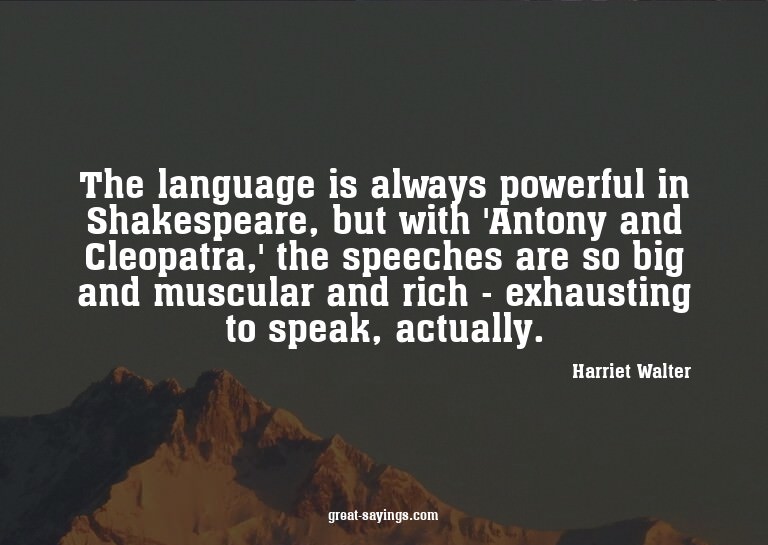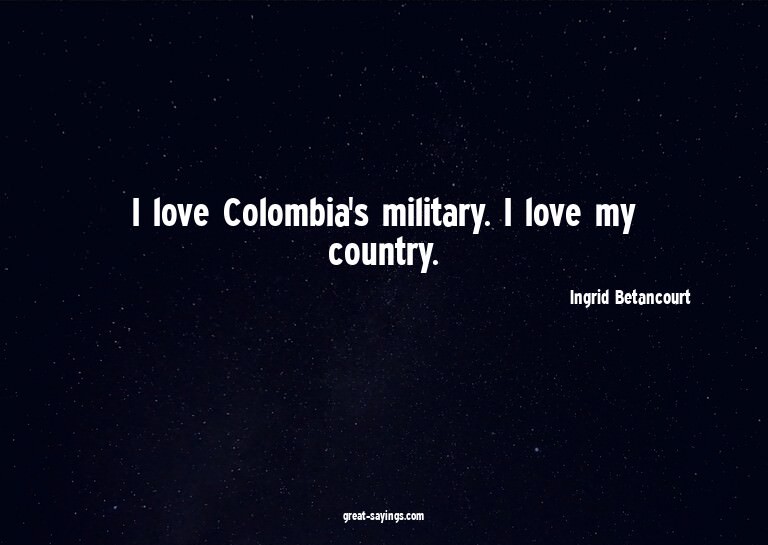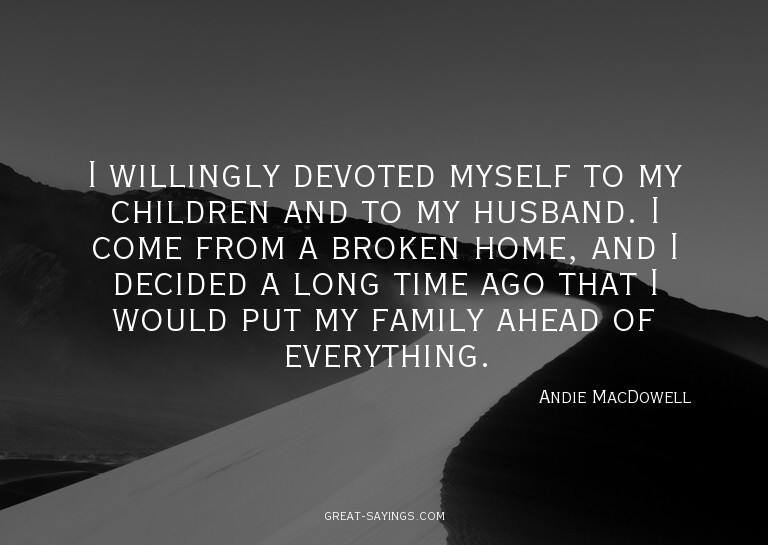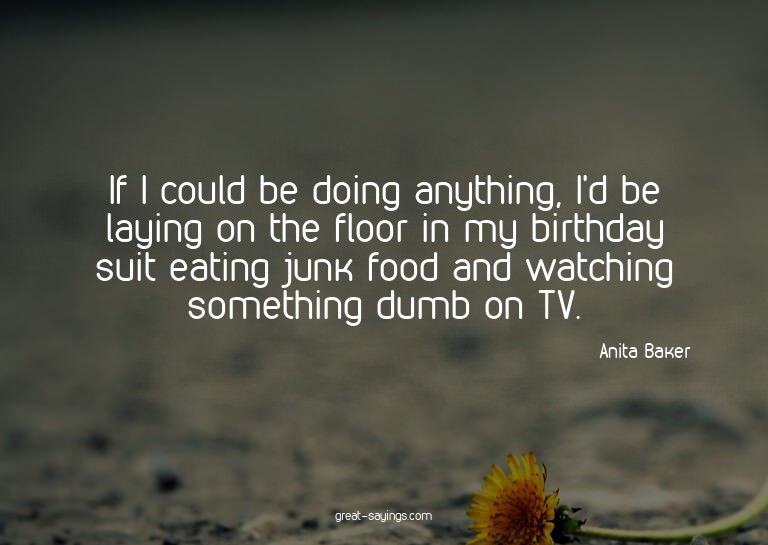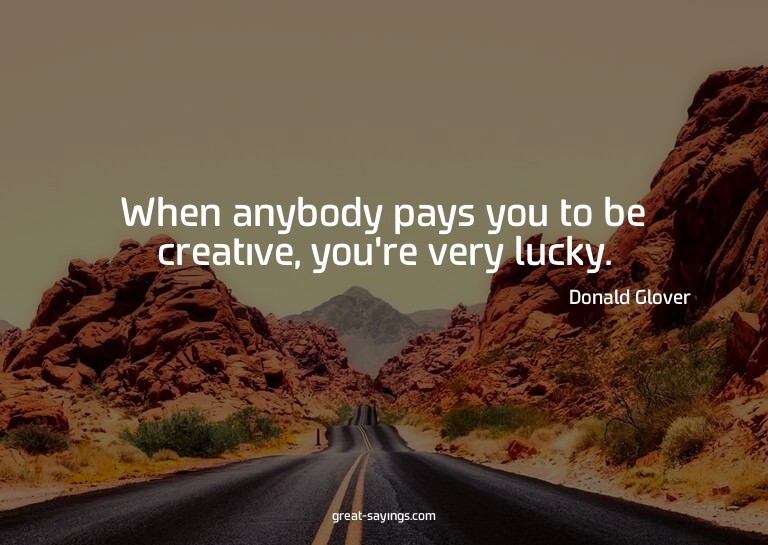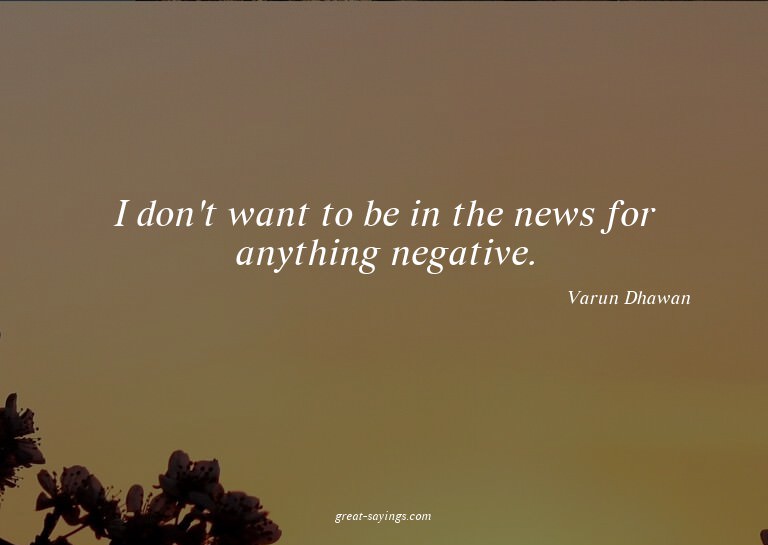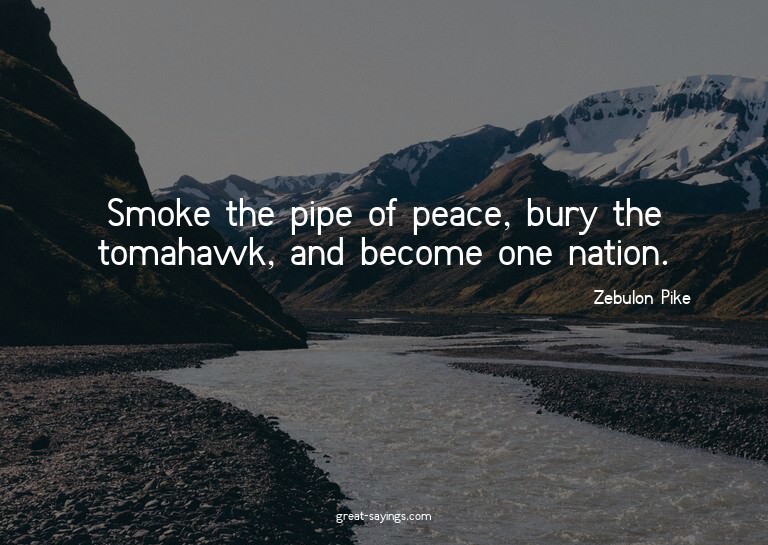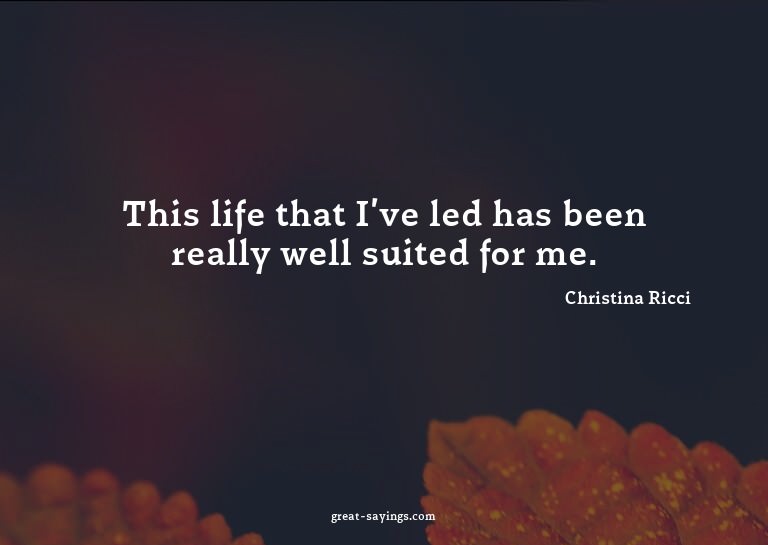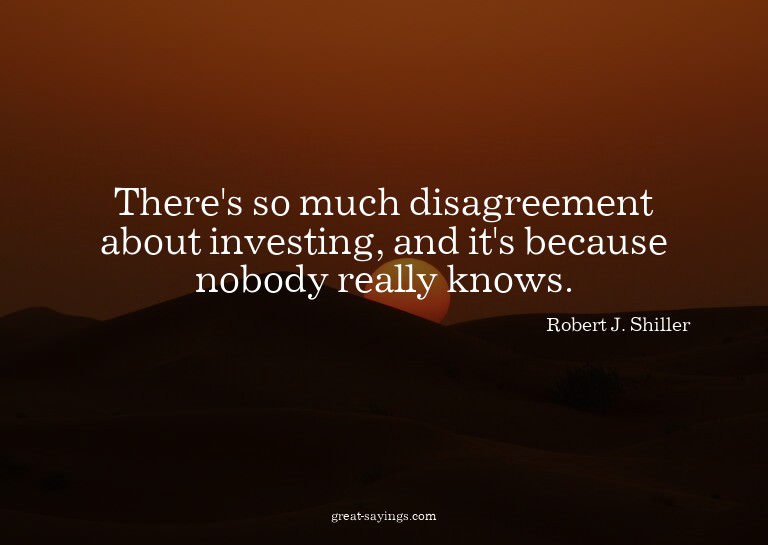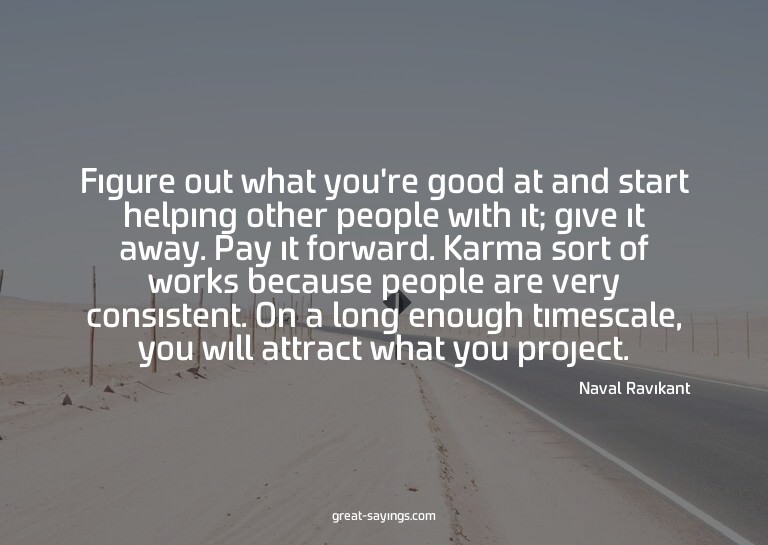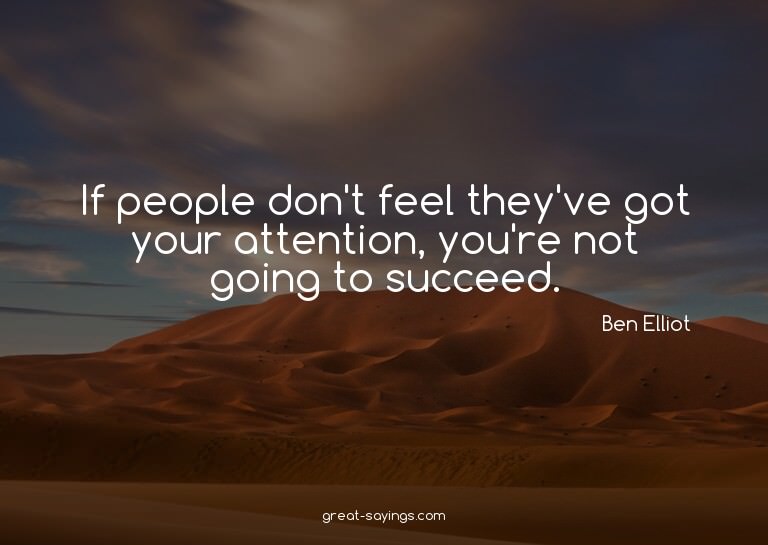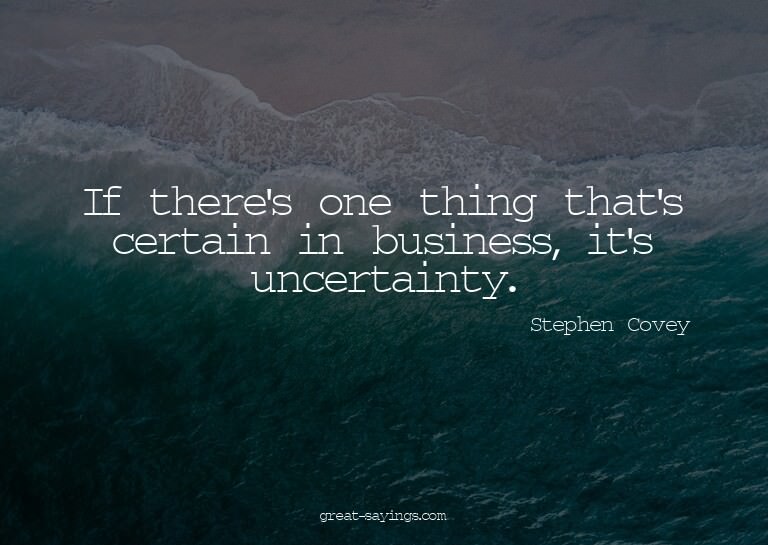Words matter. These are the best Hilary Hahn Quotes, and they’re great for sharing with your friends.
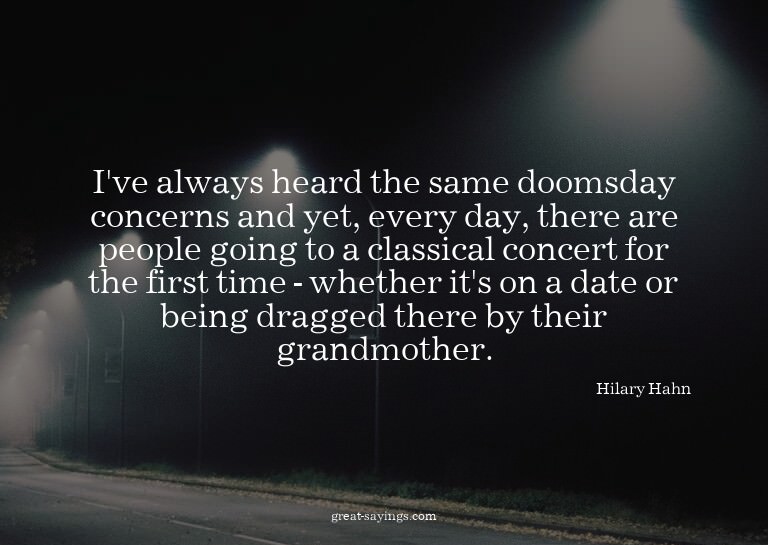
I’ve always heard the same doomsday concerns and yet, every day, there are people going to a classical concert for the first time – whether it’s on a date or being dragged there by their grandmother.
Of course everyone has those moments of frustration now and then, when you say, ‘I wish I could play well already – or just stop.’ But it’s too much trouble to stop just for a moment of frustration. It is when you keep going that you make the most progress.
Sometimes I like practicing, sometimes I don’t. But I like the result… I hardly ever get discouraged. Maybe right when it’s very hard to get something done correctly, but then the idea flashes through of how to fix it. And I get encouraged. And other ideas flow.
I like to record. It’s very intense.
I grew up without TV, I grew up listening to radio, I grew up reading.
I feel like I had as normal a childhood as anyone, but it had a certain focus. Maybe other kids focused on sports.
When you have live music in the background, people are usually talking over it. You don’t actually get to listen to live music in your space all the time.
In the performance sense, I find that interpretation is improvisatory in nature. You can go anywhere with an interpretation on any given day.
A concert is my experimentation time. I practice playing something several different ways, but in a concert, inevitably I get more ideas onstage, in that combination of focus and adrenaline, than I could ever get in the practice room.
For me, the conductor is a person who interprets along with me, and we interpret things together.
I grew up not watching TV and I enjoy TV but it kind of takes my brain away from me.
In music you can find your own niche. You can do what you want to do. There is really no job description. You have to find your own way, and that’s fun.
I wound up sticking with violin because it was the strongest current in my life.
I’ve been to New Zealand several times.
When I started my recording career, I hoped that someday the Grammy committee would notice something.
My teacher was still practicing Bach until his death at 89. I have no doubt that if I live that long, I’ll be doing the same thing.
Obviously, something like ballet, you have music, you dance with the music and it’s a very direct connection. With visual art, when there’s no music that accompanies the art, such as great masterworks in a museum, you wind up interpreting what the artist is doing, how the artist made that work and what they’re conveying.
The audience will find the artist who matches their interests. If you’re not being true to yourself, your audience can’t find you, because there’s a wall up between who you are and who they’re seeing.
The nice thing about the violin repertoire is that it’s small enough that you can plan on learning everything at some point – whereas the piano repertoire is so enormous it wouldn’t be possible unless you’re a learning machine.
You don’t need to be a performer in order to dive into the sensory experience of music. Simply get as close as you can to the source of the music.
I get to work with a lot of great musicians – many I wouldn’t have expected to work with – and see how they form their lives around their music and how they approach it.
I’ve continued to pursue other interests in my downtime, but I’m glad I’m a musician. It’s the perfect career for me.
I try to do a lot of direct contact with the audience, because the audience is part of the concert, too, as much as anyone on stage, and it’s a shame not to get to meet them if you get the chance.
Taking on music that’s not played very much is a contribution I can give. There’s so much I feel that needs more attention.
One challenge, if you do a website, a Youtube channel, Twitter, Facebook, Myspace, Ping, other things like that, is you don’t have time to be an artist. As a performer, you need to practice.
My career direction has probably been guided as much by curiosity and my personality as by my early influences.
As a professional, you pick up ideas from your colleagues and the orchestras you work with, while coming up with mutual interpretations in very short periods of time.
What I find really interesting is, whenever you see the person who gives you the portrait of yourself, the portrait seems to be a combination of their face and your face.
Growing up as a classical musician, you’re taught a lot about outreach and about how people aren’t being taught music in school. But you don’t have to study music to like it. And a lot of the music that people like – be it jazz or rock or opera – is stuff they haven’t studied.
Kids would come up to me after concerts and give me drawings they’ve made of violins or, you know, landscapes with a violin floating in it or some sketch of a concert or a portrait of me.
I don’t really compare myself to anybody. That would be very unhealthy.
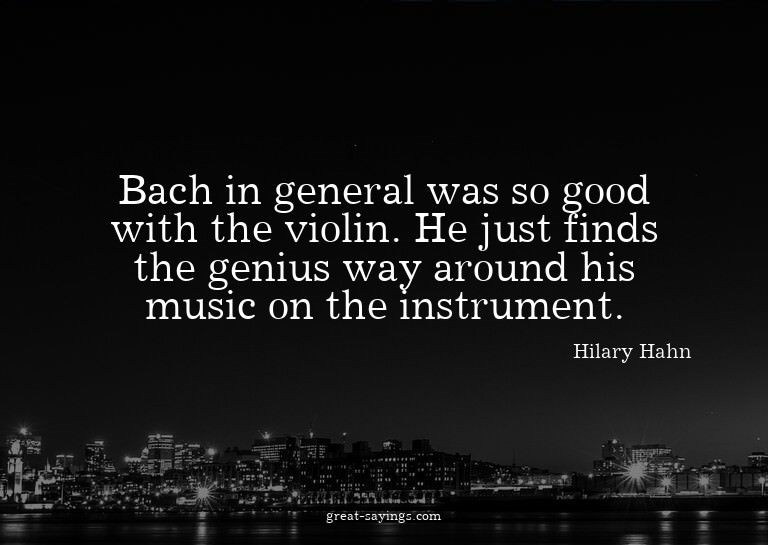
Bach in general was so good with the violin. He just finds the genius way around his music on the instrument.
Edgar Meyer’s violin concerto was the first piece of contemporary music I worked on in any depth. I was 18 or 19.
I like to take walks and getting out and seeing things. These experiences are so irreplaceable and give you a whole different perspective on the greater context that you’re in. If I didn’t try to take advantage of that, I’d be missing out on a lot of really interesting things.
I remember when I gave my first recital. I thought, ‘Oh, my goodness, people are coming to hear me.’ I didn’t expect anyone to come, and then the whole hall filled up. Of course, it wasn’t a big hall, and some of the people were my friends and family.
I was a student that responded well to knowing what to work on.
Sometimes if the point of a piece of music is to open a conversation with other people, it’s really hard to open that conversation if you’re telling people exactly what to do or feel or think.
I always feel I have a long way to go in my playing and my music.
Sometimes, I’m not sure why I wind up doing some of the things I do.
I go a lot to Korea and Japan.
Phrasing is the idea of finding sentences and using punctuation in speech. I often look at the score to see what’s written in by the composer to see if I can find clues to those directions, like what direction did the composer have in mind, and I try to incorporate those things as much as possible.
Whenever I work with people who are nonclassical artists, I kind of get a kick in the pants. I think, ‘How can I apply what I do to their music?’
With a Grammy, if you’re releasing your record with a major label, you have a chance with any record. You also have a very long shot with every record.
Deutsche Grammophon really has a grasp of the classical repertoire.
I love performing. The sounds coming at me are dynamic, colorful and multi-layered. The energy from the musicians around me and from the audience is a swirl of excitement. Sometimes, I can feel the stage vibrating under my feet.
You never know what you’re going to learn from which pieces and which composers and colleagues are going to influence that thing you think you know.
Most kids are very seriously interested in something – friends, math, shopping, sports. For me it happened to be music and the violin. I had the chance to pursue it without having it get in the way of my life.
When I was starting out with record companies, there was a tendency to simplify the image as a prodigy. I have more than one adjective, and I’ve always tried to be myself and listen to my instincts.
Is there such a thing as a normal childhood?
If you think about it – if you watch a gymnast compete, you don’t see their training behind the scenes. You just see the competition. You see the final result when it’s polished. And that is very much what people experience with concerts. They go to the concert. And they see the final version.

